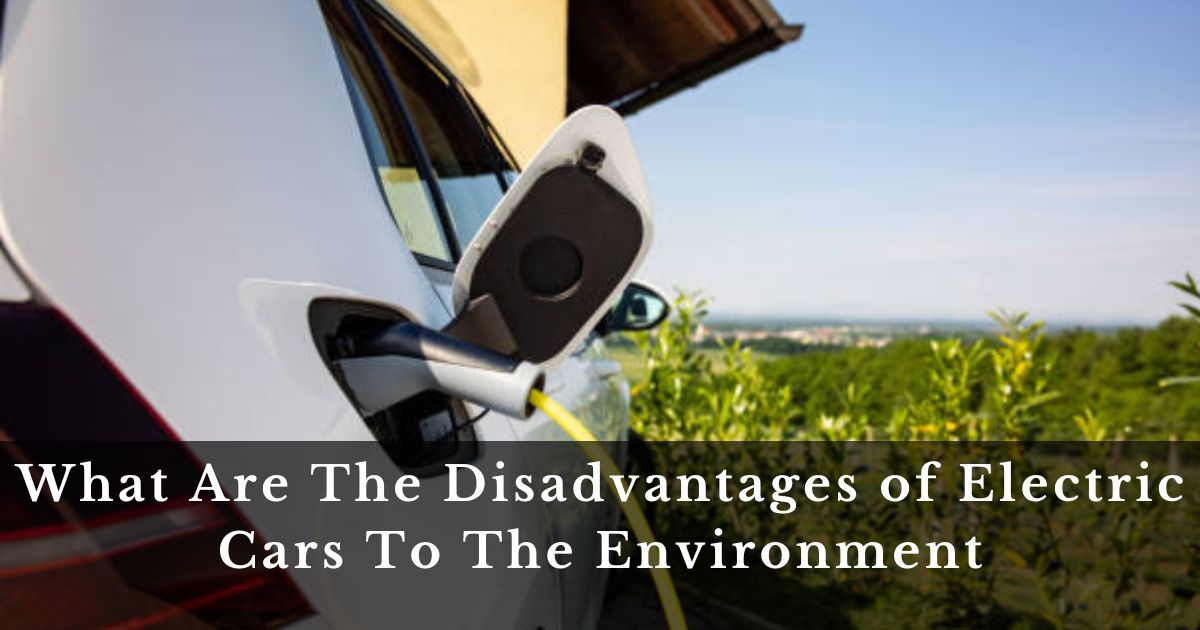What are the disadvantages of electric cars to the environment, Electric cars have become really popular lately because they’re seen as good for the environment and cheaper to run. Even though they’re better for the environment than regular cars, they still have some downsides. Let’s look at the problems electric cars can cause for the environment.
Electric cars have gained immense popularity in recent years as a greener alternative to traditional gasoline-powered vehicles. These cars run on electricity stored in rechargeable batteries instead of gasoline or diesel.
How Electric Cars Work
Electric cars use electric motors powered by rechargeable batteries. These batteries are charged by connecting the car to an electric power source, either at home or at public charging stations.
Growing Popularity of Electric Cars
With advancements in technology and increasing awareness about environmental issues, more people are opting for electric cars. Governments and automakers worldwide are promoting electric vehicles to reduce carbon emissions.
Disadvantages of Electric Cars to the Environment
While electric cars offer numerous benefits, they are not without drawbacks, especially when it comes to their environmental impact.
Battery Production Impact
One of the significant environmental concerns with electric cars is the production of batteries.
Mining for Rare Materials
The production of electric car batteries requires mining of rare and valuable materials like lithium, cobalt, and nickel. Mining these materials can lead to habitat destruction, soil contamination, and water pollution.
Battery Manufacturing Process
The manufacturing process of batteries also involves energy-intensive procedures that contribute to carbon emissions and other pollutants.
Electricity Source
The source of electricity used to charge electric cars plays a crucial role in determining their environmental impact.
Power Generation and Emissions
In regions where electricity is generated from fossil fuels, charging electric cars can indirectly contribute to greenhouse gas emissions.
Electricity Generation
Issue: Electric cars run on electricity, which is primarily generated from fossil fuels in many parts of the world.
Impact: While electric vehicles produce zero emissions at the tailpipe, the electricity used to charge them may come from coal, natural gas, or oil-fired power plants. This means that the overall carbon footprint of electric cars is not necessarily zero, depending on the source of electricity.
Renewable Energy Solutions
Switching to renewable energy sources like solar or wind can significantly reduce the environmental impact of charging electric cars.
Recycling Challenges
Another challenge is the recycling of electric car batteries at the end of their lifespan.
Balancing the Pros and Cons
Despite these challenges, electric cars offer several benefits that can help mitigate their environmental impact.
Benefits of Electric Cars
Electric cars produce zero tailpipe emissions, reducing air pollution and improving air quality. They also help reduce dependence on fossil fuels and promote energy independence.
Manufacturing Emissions
Issue: The manufacturing process of electric cars involves energy-intensive activities and the production of components like batteries and electric motors.
Impact: The emissions produced during manufacturing can offset some of the environmental benefits of electric cars, especially if the production processes are not optimized for sustainability.
Mitigating Environmental Impact
To further minimize the environmental impact of electric cars, it’s essential to invest in sustainable battery production methods, promote renewable energy sources, and improve battery recycling technologies.
Electric cars have both advantages and disadvantages when it comes to their environmental impact. While they offer a greener alternative to traditional vehicles, the production and disposal of batteries pose significant environmental challenges. By promoting sustainable practices and renewable energy sources, we can work towards reducing the environmental footprint of electric cars.
FAQs
Are electric cars really better for the environment?
Electric cars produce zero tailpipe emissions, making them better for air quality. However, their environmental impact depends on factors like battery production and electricity source.
What are the environmental concerns related to battery production?
Battery production requires mining of rare materials, energy-intensive manufacturing processes, and potential pollution from battery disposal.
Can renewable energy sources reduce the environmental impact of electric cars?
Yes, using renewable energy sources like solar or wind can significantly reduce the carbon footprint of charging electric cars.
Is battery recycling an effective solution to reduce environmental impact?
Battery recycling can help reduce waste and recover valuable materials, but challenges remain in developing efficient recycling technologies.
How can we promote sustainable practices in the electric car industry?
Promoting sustainable battery production, investing in renewable energy sources, and improving battery recycling technologies are key steps towards reducing the environmental impact of electric cars.



